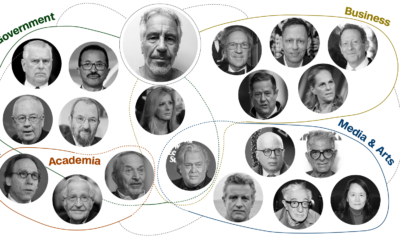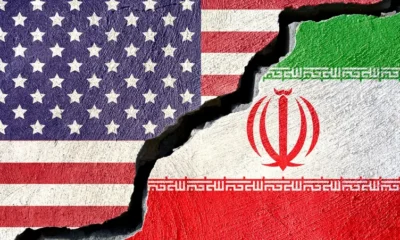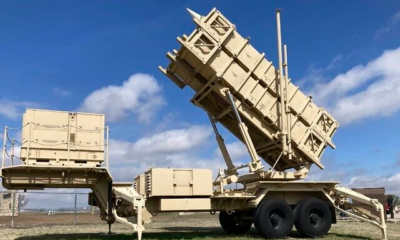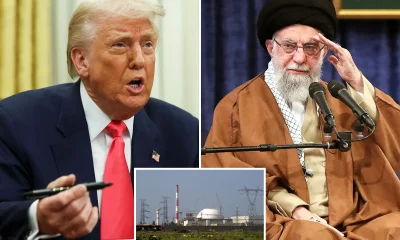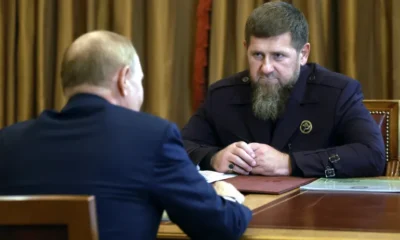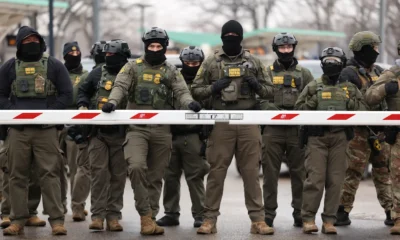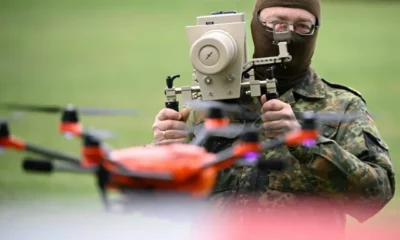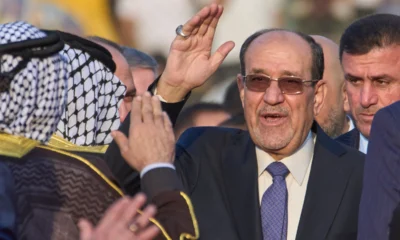Russia-Ukraine War
Ukrainian Drone Strikes Escalate in Russia’s Kursk Region
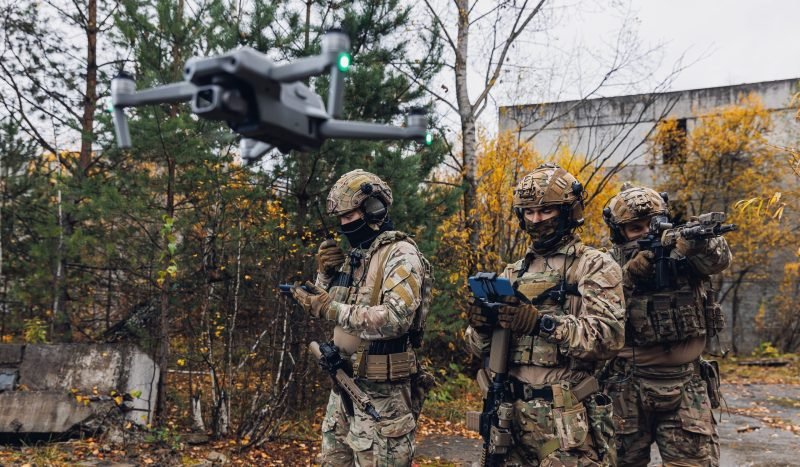
Aerial Drone Warfare Intensifies as Ukraine and Russia Trade Blows Across Border Regions
Russia’s defense ministry announced on Wednesday that it had shot down four Ukrainian aerial drones over the Kursk region. This incident follows Russia’s claim of repelling an attempt by hundreds of Ukrainian soldiers to breach the border.
The Russian defense ministry’s report of heightened aerial activity didn’t stop with Kursk. They also stated that three Ukrainian drones were destroyed over the Belgorod region, two over Voronezh, and another two over Rostov. Belgorod Governor Vyacheslav Gladkov took to Telegram to inform the public that several apartment buildings had been damaged, although fortunately, there were no reported casualties. Similarly, Voronezh officials confirmed that apartment buildings in their region had also sustained damage from the attacks.
On the Ukrainian side, the conflict is equally intense. Governor Vitaliy Kim of Ukraine’s Mykolaiv region reported that Ukrainian air defenses successfully shot down 14 Russian aerial drones, though falling debris caused several fires. The governor of the Dnipropetrovsk region, Serhiy Lysak, added on Telegram that Russian forces attacked with kamikaze drones and heavy artillery, resulting in damage to homes and farm buildings. The Khmelnytskyi and Vinnytsia regions also saw significant drone activity, with Ukrainian air defenses destroying multiple Russian aerial drones.
The exchange of drone strikes marks a new phase in the conflict, one characterized by rapid technological warfare and significant impacts on civilian infrastructure. The Kursk region, in particular, has become a focal point of this aerial battle, highlighting the strategic importance of these border areas.
These latest developments come amid broader tensions and a series of provocations. The mutual destruction of drones and subsequent damages underscore the relentless tit-for-tat strategy both nations are employing. The narrative of repelling border incursions and targeting drones deepens the sense of an escalating war that shows no signs of abating.
The destruction and damage reported on both sides reveal the growing sophistication and frequency of drone warfare. Civilian areas, as evidenced by the damages in Belgorod, Voronezh, Mykolaiv, and Dnipropetrovsk, are increasingly caught in the crossfire, raising international concern about the humanitarian impact of these strikes.
As the world watches, the use of drones has transformed the nature of this conflict, making it more unpredictable and volatile. The drone warfare not only symbolizes a technological shift but also a strategic one, where quick, precise strikes replace traditional ground combat. The implications for civilian safety, regional stability, and international diplomatic efforts are profound.
The escalating drone warfare between Ukraine and Russia signals a troubling trajectory. Each new strike and counter-strike risks drawing both nations deeper into a prolonged and more destructive conflict. The international community’s response and the ongoing efforts to mediate peace will be crucial in the coming weeks. The stakes are high, and the consequences of failure could reverberate far beyond the borders of Ukraine and Russia.
The current situation underscores the urgent need for diplomatic interventions and robust international dialogue to prevent further escalation. As both Ukraine and Russia brace for the next wave of attacks, the world remains on edge, hoping for a resolution to this dangerous standoff.
Russia-Ukraine War
Kadyrov Urges Russia to Reject Ukraine Talks and Fight to the Finish
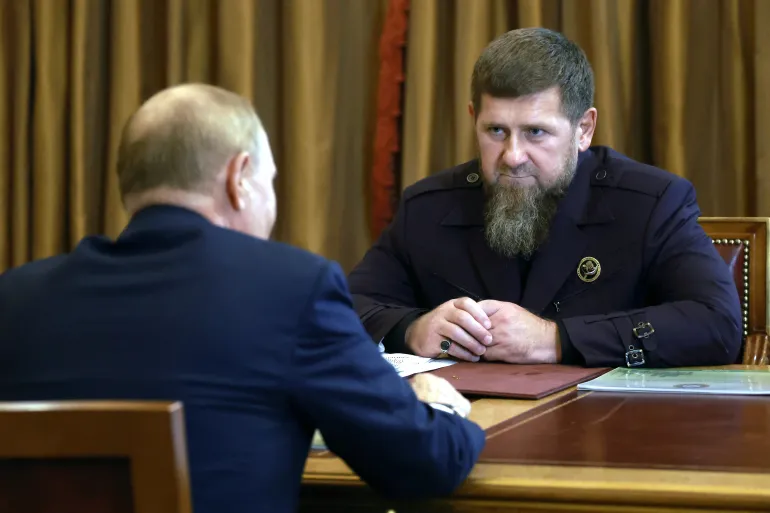
Ramzan Kadyrov Rejects Ukraine Peace Talks, Urges Russia to Fight War to the End.
Ramzan Kadyrov’s rejection of negotiations on Ukraine is less a statement of policy than a signal of pressure.
Speaking at the Kremlin while President Vladimir Putin met the United Arab Emirates’ president, the Chechen leader cast himself as the uncompromising voice of Russia’s war camp. He argued that the conflict should be fought to its conclusion and dismissed diplomacy outright.
Kadyrov’s stance reflects a strand of opinion among Russian hardliners who believe time favors Moscow. After years of grinding warfare, they see signs of Ukrainian fatigue, wavering Western unity, and shifting political winds in Washington as reasons to press on rather than pause.
But Kadyrov does not make strategy. Putin does.
The Kremlin’s line remains deliberately dual-track. Officials say Russia prefers to secure its objectives through diplomacy, yet insists those objectives will be achieved by force if talks fail. That formulation keeps every option open while allowing Moscow to test diplomatic channels without conceding leverage on the battlefield.
Kadyrov’s intervention serves a different purpose. It reminds both domestic audiences and foreign negotiators that any Russian leader contemplating compromise faces resistance from powerful hawks who frame the war as existential. By publicly opposing talks, Kadyrov narrows the political space for early concessions and strengthens the perception that only decisive outcomes will satisfy Russia’s most loyal war constituencies.
His remarks also land at a sensitive moment. Renewed diplomatic efforts to end the war are gaining attention, and regional actors in the Gulf are increasingly active as intermediaries. Delivering his message alongside a high-profile meeting with an Emirati leader underscores the contrast between Moscow’s openness to dialogue and the hardline camp’s insistence on victory.
In practical terms, Kadyrov’s position is unlikely to change the Kremlin’s calculus on its own. Putin has consistently balanced hawkish rhetoric with tactical flexibility, escalating when advantageous and exploring talks when useful. Yet voices like Kadyrov’s matter because they define the outer edge of acceptable debate inside Russia’s power structure.
For Ukraine and its partners, the message is sobering. Even if diplomatic channels expand, influential figures around Putin are preparing the public for a long war. Any negotiation that appears to fall short of Russia’s maximal aims will face loud opposition from those who believe momentum is on Moscow’s side.
In that sense, Kadyrov’s comments are less about today’s battlefield than tomorrow’s bargaining table. They signal that if talks do come, they will unfold under the shadow of a domestic constituency that demands an end through force, not compromise.
The decision on when to stop still rests with Putin. Kadyrov’s role is to make stopping harder.
Russia-Ukraine War
Why Ukraine Peace Talks Are Stuck on One Brutal Question
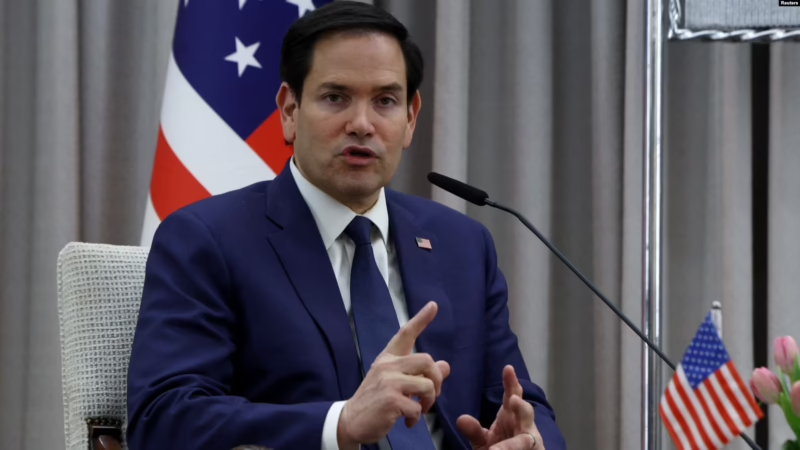
Peace now hinges on a single word: Donetsk. And no one wants to say it out loud.
The battle over Donetsk has emerged as the central fault line in U.S.-mediated efforts to end Russia’s war in Ukraine, highlighting how close — and how far — diplomacy remains from a breakthrough.
Speaking Wednesday before the U.S. Senate Foreign Relations Committee, Marco Rubio said active negotiations are under way to reconcile the territorial dispute over Donetsk, calling it the “very difficult” issue that continues to block a peace agreement.
“We’ve narrowed down the issue set to one central one,” Rubio told lawmakers. “It’s still a bridge we have to cross. It’s still a gap — and it will probably be a very difficult one.”
That gap is geography — and sovereignty.
Donetsk is part of Ukraine’s Donbas region, where Russian forces currently control roughly 90% of the territory. President Vladimir Putin has made clear that Moscow demands the entirety of Donbas, insisting Russia will take it by force unless Kyiv formally cedes what remains under Ukrainian control — around 5,000 square kilometers.
Ukraine has drawn a firm line in response. Kyiv has repeatedly said it will not “gift” Russia territory it has failed to capture on the battlefield, a position backed by Ukrainian public opinion, where polls show little appetite for territorial concessions. Most of the international community continues to recognize Donetsk as sovereign Ukrainian territory, despite Moscow’s claim that it belongs to Russia’s so-called “historical lands.”
The dispute has become the single most combustible issue in the talks.
Last weekend’s negotiations in Abu Dhabi — which included rare face-to-face contact between Russian and Ukrainian officials — ended without a deal, though both sides signaled openness to further dialogue. Follow-up talks are expected next Sunday, according to U.S. officials.
Rubio said the United States may participate directly in the next round, but confirmed that President Donald Trump’s senior envoys, Steve Witkoff and Jared Kushner, will not attend. Their absence suggests Washington is recalibrating its role as negotiations move from confidence-building to decisions with irreversible consequences.
Behind the scenes, pressure on Kyiv is intensifying. The Trump administration has made clear it wants the war — Europe’s deadliest conflict since World War II — brought to an end, even if that requires politically painful compromises. The Financial Times reported this week that Washington told Ukraine U.S. security guarantees would only follow after Kyiv signs a peace deal with Russia.
Rubio did little to contradict that framing. Asked whether security guarantees had been agreed, he said they could be considered settled “from our side of the equation,” but emphasized that they would only come into force after the war ends — and that Russia remains a decisive variable.
That sequencing matters. For Ukraine, security guarantees are not a bonus but the foundation of any sustainable peace. For Russia, territory is the price of ending the war. And for Washington, Donetsk has become the test case for whether diplomacy can square irreconcilable narratives of victory, legitimacy, and loss.
The talks are no longer about abstract principles. They are about maps.
And as Rubio’s remarks made clear, the closer negotiators get to peace, the sharper — and more dangerous — the final argument becomes.
Russia-Ukraine War
Washington Raises the Price of Protection for Ukraine

Ukraine wants guarantees. The U.S. wants a deal. Between them lies the future of Europe’s war map.
The United States has privately told Ukraine that signing a peace agreement with Russia is a prerequisite for receiving U.S. security guarantees, according to a source familiar with internal discussions, underscoring a pivotal shift in Washington’s approach to ending Europe’s largest war in decades.
For Kyiv, U.S. security guarantees are the central pillar of any settlement aimed at ending Russia’s four-year invasion. Without them, Ukrainian officials fear a ceasefire would merely pause the conflict rather than secure lasting peace. But Washington’s message, as reported by Reuters, suggests that those guarantees will not come in advance of a political deal.
The United States recently brokered indirect talks between Ukrainian and Russian envoys in Abu Dhabi, discussions U.S. officials described as making progress. Negotiators are expected to meet again on Sunday, with potential participation from American representatives.
The Financial Times reported that the Trump administration has signaled to Kyiv that U.S. guarantees would be conditional on Ukraine agreeing to a peace deal that could involve ceding the Donbas region to Russia. However, the Reuters source pushed back on that interpretation, saying Washington is not dictating the contents of any agreement and that it is misleading to suggest the U.S. is forcing territorial concessions.
Still, the leverage is unmistakable.
Ukrainian President Volodymyr Zelenskiy said Sunday that a U.S. document outlining security guarantees was “100% ready,” and that Kyiv is now waiting for a time and place to sign it. Yet senior Ukrainian officials privately express frustration, telling the Financial Times that the United States “stops each time the security guarantees can be signed,” fueling uncertainty about Washington’s ultimate commitment.
Zelenskiy has repeatedly insisted that Ukraine’s territorial integrity must be preserved in any peace settlement, a position that clashes with Moscow’s stance. On Monday, the Kremlin reiterated that territory remains a fundamental issue in any agreement, according to Russia’s state news agency.
U.S. envoys Steve Witkoff and Jared Kushner emerged from the Abu Dhabi talks optimistic that a deal could be reached soon. But optimism in Washington contrasts with anxiety in Kyiv, where officials fear that peace may come at the cost of strategic ambiguity — or worse, enforced compromise.
The message from Washington marks a recalibration rather than a withdrawal: the U.S. remains engaged, but it is no longer offering security guarantees as a blank check. Instead, it is tying protection to political closure.
For Ukraine, the dilemma is stark. Accepting this framework could accelerate an end to the war but risks locking in losses. Rejecting it could preserve principle — while leaving Kyiv exposed.
As talks resume, the question is no longer whether peace is possible, but on whose terms it will be secured — and how much security will truly be guaranteed once the ink dries.
Russia-Ukraine War
Territory Takes Center Stage as Russia and Ukraine Enter High-Stakes UAE Talks
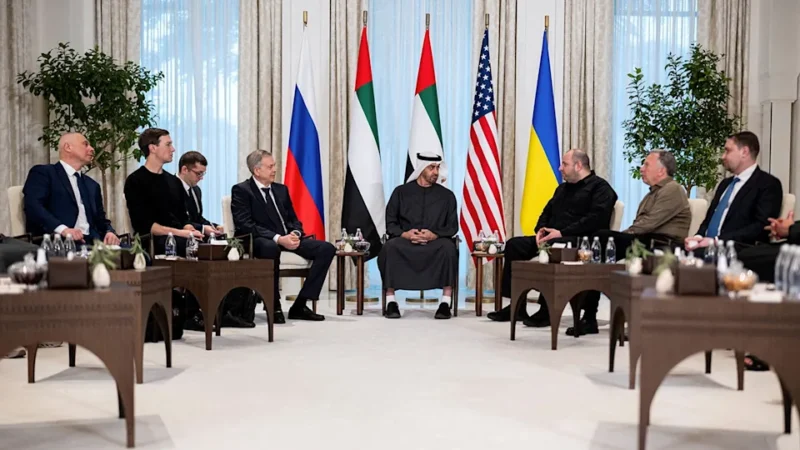
For the first time since 2022, Russia, Ukraine, and the United States are sitting at the same table — not to exchange threats, but to confront the question both sides have tried to avoid: territory.
The trilateral talks in Abu Dhabi mark a decisive shift in the nearly four-year war. Until now, diplomacy circled around ceasefires, sanctions, prisoners, and weapons. Now it faces the core dispute that has defined the conflict from the start: who controls the Donbas — and at what price.
The symbolism is as important as the substance. These talks follow President Zelenskyy’s meeting with Donald Trump in Davos and Vladimir Putin’s late-night session in Moscow with U.S. envoy Steve Witkoff and Trump’s son-in-law Jared Kushner. In diplomatic terms, this is not coincidence — it is choreography. Washington is repositioning itself not just as a supporter of Kyiv, but as the broker of a geopolitical reckoning.
At the heart of the negotiations lies Donetsk, where Russia is demanding Ukraine surrender the 20 percent it still holds. Zelenskyy has publicly rejected land concessions for nearly four years, framing them as a betrayal of national survival. Yet the very fact that Ukrainian envoys are now discussing Donbas in Abu Dhabi signals a strategic recalibration, driven less by ideology than by exhaustion.
That exhaustion is not abstract. As diplomats gather in climate-controlled conference rooms, Ukraine is enduring sub-zero temperatures after Russian missile strikes crippled its power grid. The head of Ukraine’s largest private energy firm now warns of an approaching “humanitarian catastrophe.” In war, diplomacy moves fastest when civilians freeze.
Putin enters the talks with momentum on the battlefield and clarity on his red lines. Territory is non-negotiable, and Moscow has framed any settlement around formal recognition of Russian control over occupied regions. Zelenskyy enters with international legitimacy, but narrowing strategic space — pressured by war fatigue in Europe, political recalibration in Washington, and a looming fourth anniversary of invasion.
Trump, for his part, is repositioning the narrative. Where previous administrations emphasized endurance, Trump emphasizes closure. “Now, I think they both want to make a deal,” he said aboard Air Force One — not as a prediction, but as a framing device. If peace happens, Trump claims authorship. If it fails, blame disperses across Kyiv and Moscow.
What makes these talks especially volatile is that territory is not merely land. It is identity, legitimacy, and historical memory. Any compromise risks destabilizing Zelenskyy domestically, while anything short of territorial recognition risks undermining Putin’s war narrative.
Yet the alternative is a war without horizon.
Abu Dhabi is not hosting a peace agreement. It is hosting the first real test of whether war can be politically ended, not just militarily endured.
And once territory is on the table, there is no returning to comfortable ambiguity. Every future battlefield move, every sanction, every diplomatic gesture will now be measured against a single question: who is preparing for peace — and who is preparing to win before peace arrives?
The Donbas is no longer just a front line. It is now the fulcrum of Europe’s most consequential negotiation.
Russia-Ukraine War
Putin Draws the Red Line: No Peace Without Land
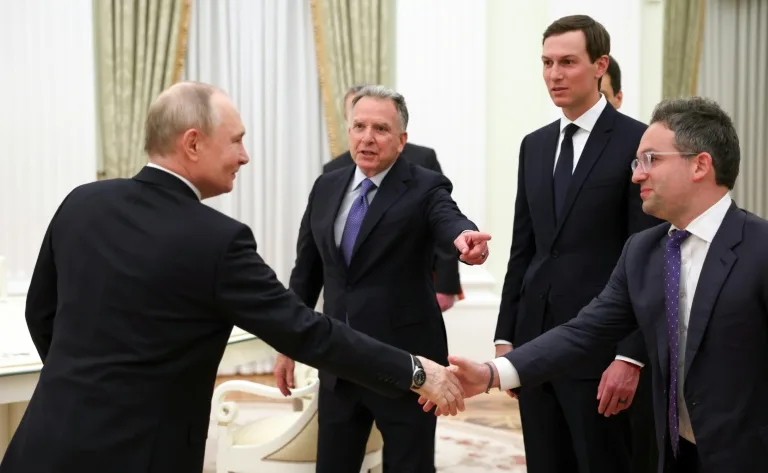
Putin Backs U.S.-Brokered Talks but Warns Territory Is the Real Obstacle to Peace.
Russia’s cautious endorsement of new U.S.-brokered security talks reveals a familiar pattern in Vladimir Putin’s diplomacy: open the door to negotiation, but bolt it firmly to the ground of territorial reality.
Following a four-hour late-night meeting in Moscow between Putin and three senior U.S. envoys, the Kremlin agreed to proceed with three-way security talks involving Russia, the United States, and Ukraine in Abu Dhabi on Friday. Yet even as Russian officials described the discussions as “constructive,” they were quick to narrow the scope of optimism. The message was blunt: without resolving territorial claims, peace is impossible.
That framing matters. For Moscow, diplomacy is not about reversing battlefield outcomes but formalizing them. By invoking a “formula” agreed upon at last year’s Trump–Putin summit in Anchorage, the Kremlin is signaling that the current talks are not about compromise but consolidation. Russia wants international recognition of territorial control, particularly over parts of eastern Ukraine that remain fiercely contested.
The choice of Abu Dhabi as the venue is telling. It reflects the growing role of non-Western diplomatic hubs in managing global conflicts, as Washington under Trump increasingly bypasses traditional European formats in favor of faster, more transactional frameworks. It also reinforces Trump’s personal imprint on the process, with his envoy Steve Witkoff and son-in-law Jared Kushner now central figures in negotiations that once belonged to institutional diplomacy.
Yet despite the choreography, the underlying contradiction remains unresolved. Putin insists Russia is “sincerely interested” in diplomacy, while simultaneously reaffirming that military operations will continue until territorial objectives are met. This dual-track strategy allows Moscow to project reasonableness abroad while maintaining relentless pressure on the battlefield — particularly visible in Russia’s winter campaign targeting Ukraine’s energy infrastructure.
For Ukraine, the stakes could not be higher. Kyiv has made clear it will not surrender territory gained or defended at enormous human cost, especially in Donetsk, where Russia demands further concessions. President Volodymyr Zelenskiy has hinted that security guarantees are nearing agreement, but territory remains the immovable object colliding with Russia’s unstoppable force.
Trump’s blunt warning — that both leaders would be “stupid” not to reach a deal — underscores the urgency from Washington’s perspective. But urgency alone cannot bridge a gap rooted in fundamentally incompatible goals: Russia seeks recognition of conquest; Ukraine seeks preservation of sovereignty.
The Abu Dhabi talks may open a procedural path forward, but they also expose the hard truth behind the diplomatic theater. The war is not primarily about ceasefires or confidence-building measures. It is about borders — and who gets to redraw them.
Until that question is answered, peace will remain less a destination than a bargaining chip.
Russia-Ukraine War
Ukrainian Operator Exposes the Brutal Limits of High-Tech War
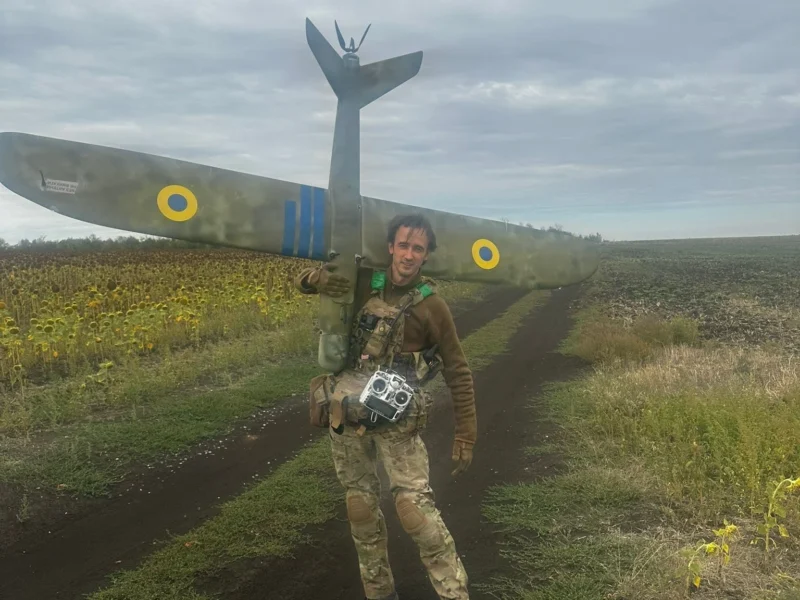
Ukrainian Drone Operator Says Weather, Manpower Shortages and Artillery Gaps Expose Limits of Drone Warfare.
From the skies above Pokrovsk, one of Ukraine’s fiercest battlefields, drone operator Sgt. Dimko Zhluktenko has seen the future of war — and its hard limits.
Zhluktenko, a former software engineer turned ISR drone team leader, says drones have transformed Ukraine’s defense, but they cannot stop Russia’s advance on their own. His experience near Pokrovsk in 2025 reveals a sobering truth: technology buys time, not victory.
For much of the summer, drones dominated the battlefield. Tanks became rare sights. Russian movements were exposed before they reached Ukrainian lines. But when autumn arrived, thick fog and low cloud cover shut down the skies. Infrared and thermal cameras became useless. Flights were grounded for days. Russia adapted quickly, advancing under cloud cover with infantry and vehicles, exploiting weather as a weapon.
The result was predictable — and devastating.
Russia’s strategy, Zhluktenko explains, is brutally simple. Test Ukraine’s limits, then overwhelm them with numbers. Ten soldiers become twenty. Twenty become thirty. To stop fifty dispersed attackers, Ukraine might need more than a hundred drones and artillery strikes — resources it simply does not have.
Drone warfare remains central to Ukraine’s defense, accounting for an estimated 80% of Russian losses in some sectors. But drones are finite. Pilots are exhausted. Weather is uncontrollable. And without sufficient troops, artillery shells, and long-range firepower, even perfect surveillance cannot hold ground forever.
Zhluktenko’s account also exposes a deeper problem: traditional firepower has not kept pace with modern warfare. Mortars are nearly unusable due to battlefield transparency. HIMARS strikes are rationed to a handful per week. Some artillery units fire only a few shells a day — even when clear targets are identified.
Pokrovsk, he says, could not be defended indefinitely under these conditions.
The lesson from the front is stark. Drones have reshaped war, but they have not replaced it. Victory still depends on manpower, ammunition, logistics, and sustained support. As Zhluktenko redeploys to Dnipro, his message is clear: Ukraine’s survival will not be decided by technology alone, but by whether its allies match innovation with resources.
In modern war, drones may see everything — but they cannot do everything.
Russia-Ukraine War
Putin Revives Hypersonic Threat as Warning to West: Oreshnik Is Back
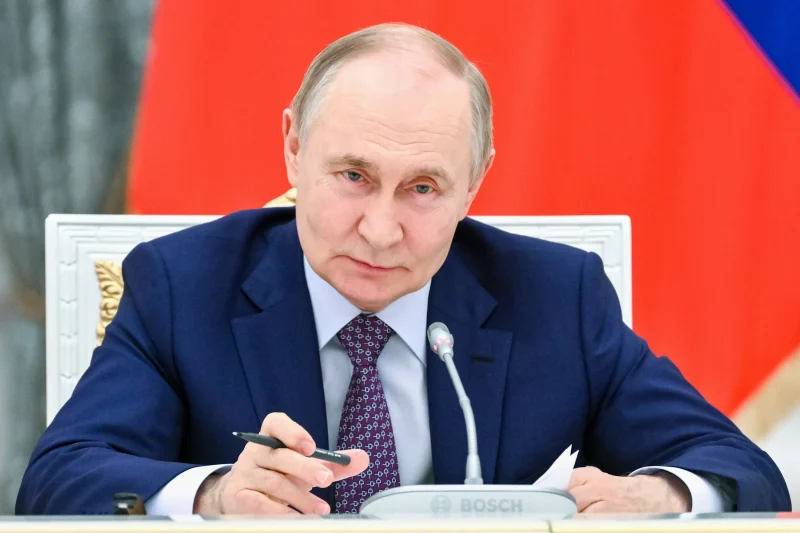
Putin Fires Oreshnik Hypersonic Missile to Signal Escalation to Ukraine, Europe and the U.S.
President Vladimir Putin’s decision to fire the Oreshnik hypersonic missile — a weapon Russia has not used since late 2024 — is less about battlefield impact and more about political intimidation at a sensitive moment in the war.
The strike in western Ukraine came after a bruising week for Moscow. The United States captured Venezuelan President Nicolás Maduro, one of Putin’s closest allies. Days later, U.S. forces seized a Russian-flagged oil tanker in the North Atlantic. At the same time, Britain and France announced plans to deploy troops to Ukraine if a ceasefire is reached — a move Russia immediately warned would turn foreign soldiers into “legitimate combat targets.”
Against that backdrop, the Oreshnik launch looks deliberate. Analysts say Moscow feels sidelined by diplomatic talks between Washington, Kyiv and European capitals, and especially angered by the prospect of Western troops on Ukrainian soil. The missile, capable of carrying nuclear or conventional warheads, was reportedly fitted with inert payloads — reinforcing the idea that the message, not destruction, was the objective.
Western officials read it exactly that way. European leaders branded the strike “escalatory,” while EU foreign policy chief Kaja Kallas called it a direct warning to Europe and the United States. The launch took place just 60 kilometers from NATO-member Poland, ensuring it could not be ignored.
Russia’s official explanation — that the missile was retaliation for an alleged Ukrainian drone attack on one of Putin’s residences — has been widely dismissed. Ukrainian officials deny such an attack ever happened, and even prominent Russian war bloggers questioned the credibility of the claim.
Military analysts describe the Oreshnik as a psychological weapon in this context: a reminder that Russia remains a nuclear-armed power willing to escalate if it feels cornered. Dmitry Medvedev, Putin’s deputy on the Security Council, openly linked the strike to recent U.S. actions and looming sanctions, framing it as a necessary shock to a chaotic global order.
Crucially, Russian commentators acknowledge the missile is scarce and unlikely to be used often. That only sharpens its meaning. Oreshnik is not routine firepower — it is a strategic signal.
The message from Moscow is blunt: Russia wants back into the center of negotiations, demands to be taken seriously, and is prepared to escalate symbolically if ignored. Whether that intimidation hardens Western resolve or pulls talks back toward Moscow remains the next test.
Russia-Ukraine War
Moscow Threatens to Strike British and French Forces in Ukraine
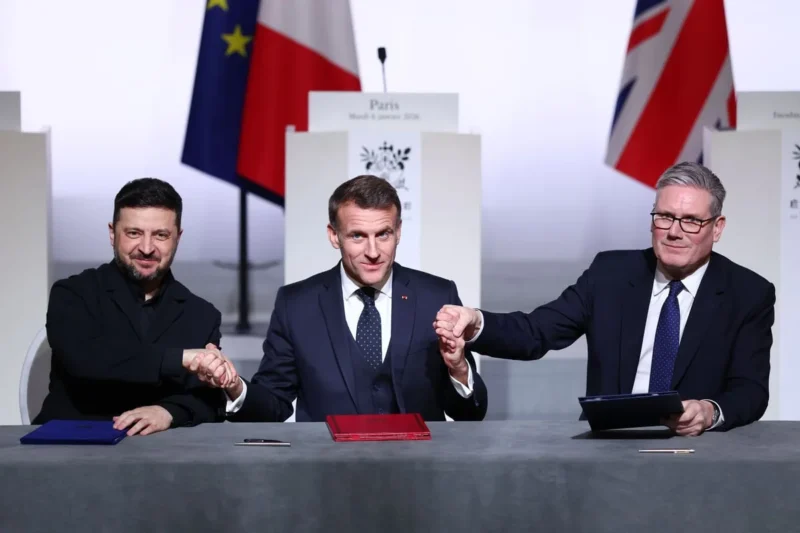
RED LINE DRAWN — Russia Warns Western Troops in Ukraine Would Be “Legitimate Targets” as UK and France Plan Post-Ceasefire Force.
Russia has issued its bluntest warning yet to Europe, declaring that any Western troops deployed to Ukraine would be treated as “legitimate combat targets,” a sharp escalation in rhetoric that underscores how fragile — and potentially explosive — any future ceasefire could be.
The threat came hours after Britain and France unveiled plans for a multinational force to deploy to Ukraine if hostilities pause. Meeting in Paris, leaders of the so-called “coalition of the willing” outlined a framework that could see thousands of European troops operating on Ukrainian soil to help secure airspace, protect maritime routes and assist in rebuilding Ukraine’s armed forces. French President Emmanuel Macron openly floated the idea of deploying French troops, while British Prime Minister Keir Starmer said the initiative would establish a legal basis for long-term Western military involvement.
Moscow’s response was immediate and unforgiving. In a statement, Russia’s Foreign Ministry warned that Western military units, infrastructure or depots in Ukraine would constitute “foreign intervention” and pose a direct threat to Russian security. Any such presence, it said, would fall squarely within the Russian military’s list of lawful targets. The ministry went further, branding the European initiative a dangerous “axis of war” that risks dragging the continent into a deeper, costlier confrontation.
The language matters. For the first time, the Kremlin is explicitly signaling that a post-ceasefire Western presence would not be treated as peacekeeping, but as an extension of the battlefield itself. That framing narrows the diplomatic space and raises the stakes for European capitals weighing how far they are willing to go to guarantee Ukraine’s security.
Russia continues to argue that its 2022 invasion was a pre-emptive move to stop NATO’s eastward expansion and prevent Ukraine from becoming a Western military outpost. It has long insisted that the stationing of foreign troops in Ukraine is a non-negotiable red line. Ukraine and its allies counter that Moscow’s real aim is territorial conquest and long-term domination, pointing to Russia’s occupation of nearly 20 percent of Ukrainian territory.
The United States has drawn its own limits. Washington has ruled out sending American troops but has voiced support for security arrangements designed to deter future Russian attacks. That gap — European ambition paired with American restraint — is now shaping a dangerous gray zone.
At its core, the dispute exposes the central paradox of any Ukraine ceasefire: Kyiv wants guarantees strong enough to prevent another invasion, while Moscow sees those same guarantees as provocation. Russia’s warning suggests that unless this contradiction is resolved, even “peace” could come with the constant risk of a wider European war.
-

 Analysis11 months ago
Analysis11 months agoSaudi Arabia’s Billion-Dollar Bid for Eritrea’s Assab Port
-

 Interagency Assessment2 months ago
Interagency Assessment2 months agoTOP SECRET SHIFT: U.S. MILITARY ORDERED INTO SOMALILAND BY LAW
-
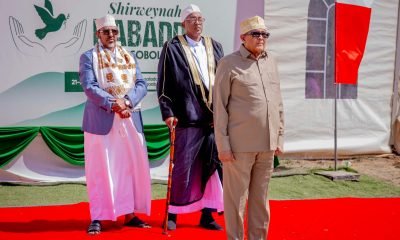
 Somaliland3 months ago
Somaliland3 months agoSomaliland Recognition: US, UK, Israel, and Gulf Bloc Poised for Historic Shift
-

 EDITORIAL1 year ago
EDITORIAL1 year agoDr. Edna Adan Champions the Evolving Partnership Between Somaliland and Ethiopia
-
Top stories2 years ago
Ireland, Norway and Spain to recognize Palestinian state
-
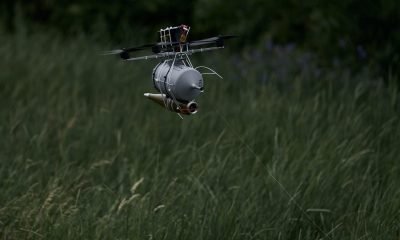
 Russia-Ukraine War6 months ago
Russia-Ukraine War6 months agoFibre-Optic Drones Shift Ukraine’s Drone Warfare
-

 ASSESSMENTS10 months ago
ASSESSMENTS10 months agoOperation Geel Exposes the Truth: International Community’s Reluctance to Embrace Somaliland as a Strategic Ally
-
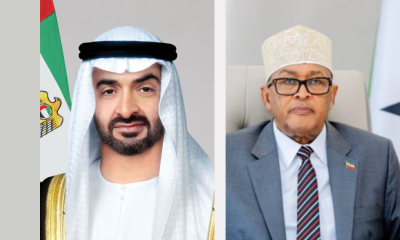
 Somaliland1 year ago
Somaliland1 year agoSomaliland and UAE Elevate Ties to Comprehensive Strategic Partnership


